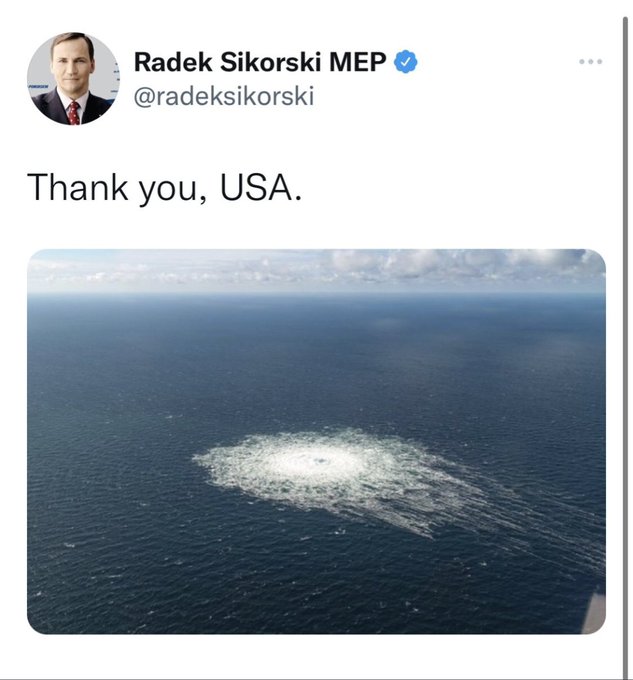This year the world will be dominated by the continuing decline of the United States. This is not a question of multi-polarity, but a new cold war. And the loser is: Europe.
Robin McAlpine is the director of the Scottish think and do tank Common Weal
Cross-posted from Robin’s website
I’m expecting 2023 to be another difficult year and certainly it contains major challenges at almost every level. To have a chance of meeting those challenges we need to understand the undercurrents of what is happening. So I’ll start the year with a series of four brief articles trying to set some context for 2023.
To begin with let’s take a look at the context in which world events will take place over the coming year. You’ll be presented much of what is already happening and what is going to happen in simplistic ways – freedom versus authoritarianism, democracy against autocracy, progress versus regression. I’d encourage you all to set that aside for a minute.
Rather I’d argue that 2023 is all about polarities of power, who they are and how many there should be. In some ways that is a truism – every year is about power, who has it and how they believe it should be wielded.
But something else has been happening for a number of years now and in 2022 it became unmissable; we are exiting a multipolar world and it is going to have very major ongoing consequences. I would urge you not to think about anything on the global stage without first thinking about what it means for the empires.
When the Soviet Union collapsed in 1989/90 it left behind a unipolar world. There was only one remaining superpower and it was the US. In fact the US went out of its way to ensure there was only one superpower through active promotion of extreme economic ‘shock treatment’, excessive triumphalism and military encirclement during Russia’s post-Soviet transition.
Its relationship with the other potential superpower (China) was complacent. Like any empire the US eyed China as a source of the resources the US didn’t have, but in this case the resource was cheap labour. Rather than a colonial approach the US took a trade route. The US seems to have believed that China was too far behind development-wise to pose a threat to the US’s preeminent leadership role.
China had become increasingly trade-orientated from the time of major reforms in the late 1970s and by the early 1990s was increasingly developing a role as the US’s chief provider of cheap Labour (along with Mexico). By 2001 when China finally joined the WTO, the development of both nations was closely tied together.
The problem for the US was that China used the development this unlocked to develop the nation as a whole through authoritarian central rule. It enabled China to develop massive new social and physical infrastructure. China used the relationship to leverage itself up towards the US’s level of development.
The US’s approach to development was quite different. As with everything in the neoliberal era, the US’s interests were viewed primarily through the lens of the US’s global business elite. It was the profitability and share price of US-registered multinational corporations which received the developmental benefit. US citizens were then supposed to receive some benefit from trickledown economics.
But they didn’t. China the nation got stronger, US the global financial centre got stronger, US corporations got stronger, but the fabric of the US as a nation did not. The benefit the population of the US gained was cheaper products. The price they paid was stagnant wages and a massive loss in good jobs.
This coincided with a reckless response to the attack on New York’s World Trade Centre which resulted in a rampage across the Middle East which absorbed enormous amounts of US time and money and burnt through global good will and respect.
The outcome was that the US ended up stuck in a cul de sac of failing imperial ambition and a hollowed-out domestic economy. This significant hit to US prestige (and the personal prestige of US workers) led directly to Trump. Trump is an idiot but he could see that the US was stagnating and China was developing rapidly. He wanted to reverse the mutual development model which had got them there so started a trade war.
But unlike so much else with Trump, on this issue he was reflecting a rapidly-emerging US consensus – China was growing too fast and it had to be stopped. Biden is every bit as hostile to China as Trump and has pursued if anything an even more aggressive and protectionist policy agenda.
Meanwhile in Europe, France and Germany were increasingly uncomfortable with Europe’s subservient status during and after the George W Bush era. Both in different ways were looking at plans for increasing the power of the EU in relation to the US. The US was very unhappy with that indeed.
To give an indication of the contemporary relationship between the US and Europe you only need to look at the aggressive lobbying to keep Chinese tech out of Europe leaving the field open for US tech (Europe has depressingly little tech of its own) and the equally aggressive lobbying against trade relationships between Europe and Russia.
I am well aware that if someone from the left dares to point out the simple fact that the US has been working for decades to create conditions that break the EU and Russia apart we are virtually accused of treason. This is exactly why the US and its facilitators are desperate for you to see the world through a simplistic goodies/baddies frame.
That isn’t the reality. I make absolutely no moral judgement in pointing out that the US is in decline, China is on the rise, Russia is refusing to accept a subservient position and much of the rest of the world is not on board with the US’s vision of unipolarity.
The plaything in all of this appears to be Europe. The US now has almost no chance of maintaining a unipolar world with it at the head of the table, so it is reconstructing an empire where it can be at the head of the table indefinitely. That begins with dominating Europe, maintaining and even strengthening Europe’s dependency on the US.
Putin’s appalling war on Ukraine has enabled that in ways that would have seemed impossible a year or two ago – the way the US has decided that it will use its currency as the global reserve currency one day and a weapon the next, the breadth of sanction on Russia, the revitalisation of a Nato role in Europe, the mysterious destruction of two Russian gas pipelines the US lobbied against for many years…
The US can’t rule the world unchallenged so it wants two worlds so it can rule one of them (and leave China to rule the other). Which is to say that the US is engineering another Cold War, another Iron Curtain. This isn’t in China’s interests, or Russia’s, or Europe’s, or Latin America’s, or the Middle East’s. It only works if you’re an empire in decline.
The problem the US faces is that the rest of the world (other than poor, decrepit Europe) seems disinclined to play along. From Opec turning the screws on petrochemical prices to Latin American leaders openly refusing to return to two separate unipolar blocks to African disinterest (China has treated Africa better than any white-majority nation has) to the rapid development of new global payment systems the US does not control, it’s plan isn’t going as well as it might appear.
In fact it really is only Europe which is looking pitifully weak at this juncture. The US has been fuelling conflict at the edge of Europe for a long time and anyone not deeply suspicious about feasible motives for the massive terrorist attack on the two Nordstream pipelines (isolating Europe and increasing its energy- as well as militarily-dependent on the US) is being naïve.
Again, this isn’t about moral judgements. Making apologies for the unpleasant and authoritarian regimes in Russia and China is stupidity – they are genuinely unpleasant and authoritarian. But defending the US on the flimsy basis that it ‘makes mistakes but is the goodie in the building’ is equally stupid.
On climate, on international relations, on peace and justice, on war, on trade, the US is not the good guy, it is the selfish guy. It want to dominate its sphere of influence not for our sake, not for the world’s sake but for its own.
Over the course of 2023 the US will continue aggressively to isolate the globe into separate power blocks and increase the hostility between these power blocks in pursuit of the preservation of its own power. In doing this it is only behaving like every declining empire in human history.
I write this solely to provide context for how you understand what is going to happen in the world in the year to come. Polarisation, protectionism and militarism is US policy just as domestic control, coerced global partnerships and security surveillance is China’s or regaining its own imperial ambitions is Russia’s.
Unless we can get beyond the narrative of good and evil, right and wrong, and face the reality that what we are really seeing is the eternal, selfish scramble for global power as the world devolves into multipolarity, we will have no solid foundation on which to address the world’s massive challenges.




Be the first to comment